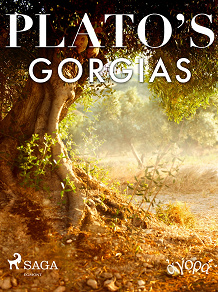E-bok
Plato’s Gorgias
Gorgias of Leontini, a famous teacher of rhetoric, has come to Athens to recruit students, promising to teach them how to become leaders in politics and business. A group has gathered at Callicles' house to hear Gorgias demonstrate the power of his art. This dialogue blends comic and serious discussion of the best life, providing a penetrating examination of ethics. Is it better to suffer evil or to do evil? Is it better to do something wrong and avoid being caught or to be caught and punished? Is pleasure the same as goodness? As the characters in the dialogue pursue these questions, the foundations of ethics and the nature of the good life come to light.
Plato lived in Athens, Greece. He wrote approximately two-dozen dialogues that explore core topics that are essential to all human beings. Although the historical Socrates was a strong influence on Plato, the character by that name that appears in many of his dialogues is a product of Plato’s fertile imagination. All of Plato’s dialogues are written in a poetic form that his student Aristotle called “Socratic dialogue.” In the twentieth century, the British philosopher and logician Alfred North Whitehead characterized the entire European philosophical tradition as “a series of footnotes to Plato.” Philosophy for Plato was not a set of doctrines but a goal — not the possession of wisdom but the love of wisdom. Agora Publications offers these performances based on the assumption that Plato wrote these works to be performed by actors in order to stimulate additional dialogue among those who listen to them.
Plato lived in Athens, Greece. He wrote approximately two-dozen dialogues that explore core topics that are essential to all human beings. Although the historical Socrates was a strong influence on Plato, the character by that name that appears in many of his dialogues is a product of Plato’s fertile imagination. All of Plato’s dialogues are written in a poetic form that his student Aristotle called “Socratic dialogue.” In the twentieth century, the British philosopher and logician Alfred North Whitehead characterized the entire European philosophical tradition as “a series of footnotes to Plato.” Philosophy for Plato was not a set of doctrines but a goal — not the possession of wisdom but the love of wisdom. Agora Publications offers these performances based on the assumption that Plato wrote these works to be performed by actors in order to stimulate additional dialogue among those who listen to them.
Logga in för att låna
Information
Stöds av följande plattformar
PC/Mac
Surfplatta Läsplatta
Smartphone

